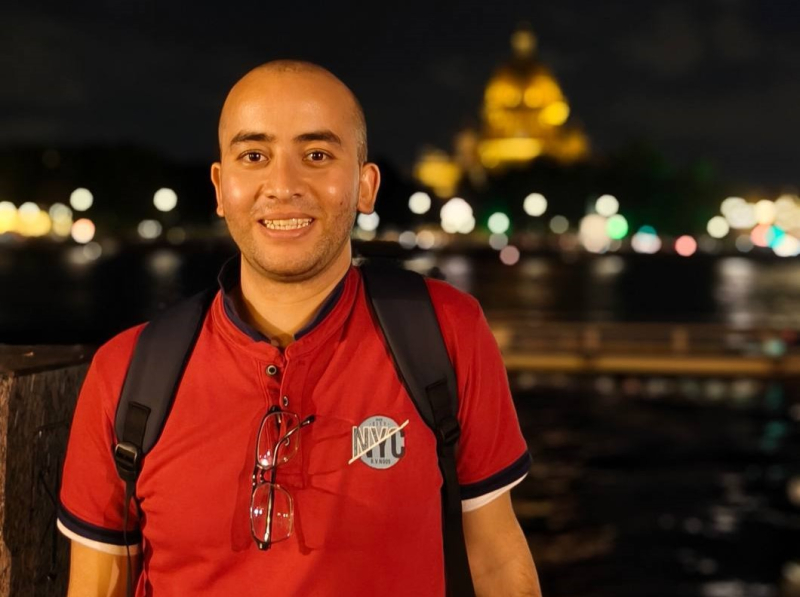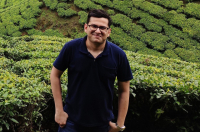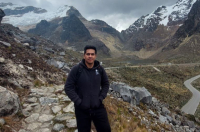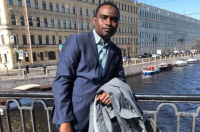Please introduce yourself to our readers.
I am Abanoub Mikhail from Egypt, currently a 1st-year PhD student in optics at ITMO. I did my Master’s degree back at home and after graduation, I worked for a few years, first as a student mentor and later as an assistant professor. Then, I decided to push further and pursue a PhD and that’s what brought me here!
That’s quite fascinating! Tell us how you got interested in doing a PhD in Russia.
Russia is well-known for its high quality of education and opportunities for foreigners. Many Egyptian students study in Russia and on government scholarships! But what motivated me the most was its rich treasure trove of historic events. Before becoming a physicist, I was a massive history nerd. Hence, Russia holds a special place in my heart.
Wow! So how did you get into physics?
As a teenager, I wanted to become a historian, but my life progressed along a different trajectory. Yet, I have not stopped excavating the depths of time for facts. Even when I am studying a concept in physics, I like to learn all about its history, the life of the person who pioneered it, and the circumstances under which these concepts were developed. It helps me see physics through their eyes and, indeed, it is the most fundamental natural science in our reality.
How did ITMO become your home for scientific exploration?
I found out a lot about ITMO and its Faculty of Physics online. I was very impressed by the work they are doing, especially in the field of optics and quantum mechanics, which are my favorite topics in physics. Also, I discussed it with a few friends of mine who resonated with my initial feelings and thoughts about ITMO. All of these factors contributed to my decision to study at ITMO.
Did you receive a scholarship from the government?
Yes, I did apply for the Russian government scholarship and won it. The application process was pretty simple and the exams were reasonable, too. In my opinion, it was one of the smoothest scholarship applications and the support team was really helpful at all stages of the procedure.
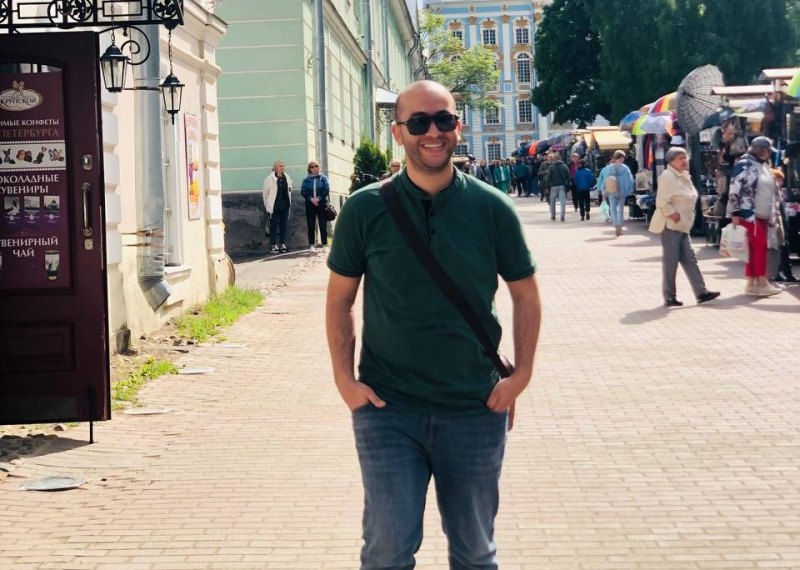
“The architecture of St. Petersburg is extraordinary. I am mesmerized every time I walk down the streets,” says Abanoub. Photo courtesy of the subject
What projects are you working on?
Currently, I am working on three projects, all dealing with the spin of atoms, molecules, or particles.
What are your thoughts on the publish-or-perish culture in academia?
In my opinion, it just makes life harder for PhD students. I have not yet faced a lot of its wrath, as I am still pretty new to PhD life. I have one publication so far in which I was a collaborator. The main authors of this paper were from the Faculty of Biotechnologies.
Amidst all this, have you been able to explore St. Petersburg?
I have been to some of the very popular places here. As I already mentioned, I have a knack for history, so the museums in St. Petersburg are my absolute favorite. I believe it is the most beautiful city in the world, with its jaw-dropping architecture. The buildings here are the showstoppers!
Seems like you are in love with the city. But how were you able to adjust to the cold here?
Oh, it was not a challenge at all! Although my body had never experienced such cold temperatures, somehow I felt more energetic, happy, and enthusiastic during the winter. I swear I felt more motivated to work hard when the temperature plummeted below zero Celsius. You might think I’m weird, but that’s my honest experience!
You are not the only one to say that among our interviewees! Did you find a dish suitable for your taste buds here?
Russian food is delicious, but it would take me some time to get used to it. In the meantime, I eat out at restaurants with my friends and colleagues. Every week, we try food from a different country. My favorites were Vietnamese and Georgian cuisine. I don’t remember the names of the dishes, but I can never forget the flavors.
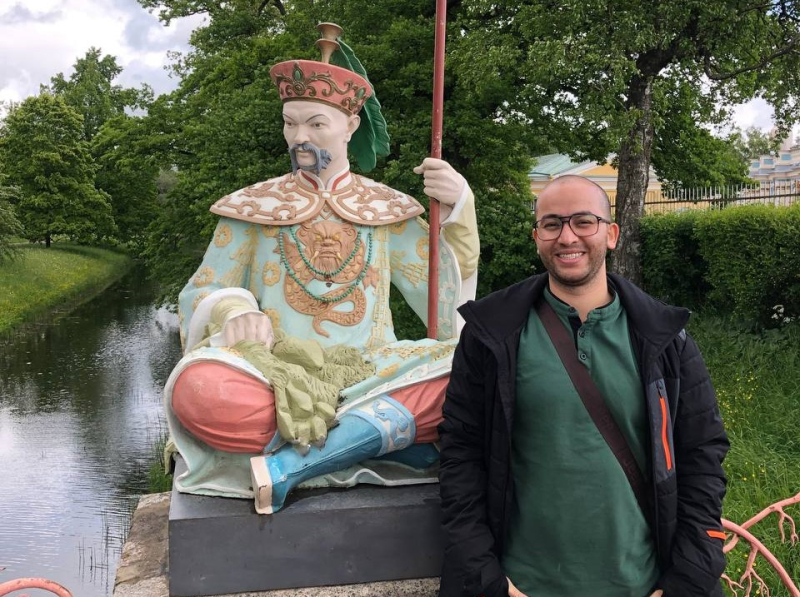
Abanoub loves exploring historic places in St. Petersburg. Photo courtesy of the subject
What are your plans after PhD?
As of now, finishing the PhD well is my main goal. Once that is done, I will step into the professional world again. I am open to both academia and industry. Both have their pros and cons and I will evaluate my options then. Now it is quite premature to say anything concrete about it.
What advice would you like to give future PhD students?
My advice for new PhD students is to look for cooperation with internal and external collaborators. Alone, you cannot make a big difference, but with people next to you, you can achieve great heights. Therefore, never be scared of communication. Meet new people, network, and establish long-lasting relationships. That’s the mantra to succeed in a PhD.
